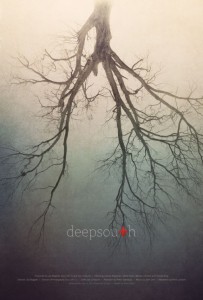
Release Date: TBD
Director: Lisa Biagiotti
MPAA Rating: NR
Film Pulse Score: 7/10
The AIDS/HIV epidemic has been with us for nearly two generations now. At the outset it was a disease that caused the condemnation and ostracizing of the gay community. It was known as the “gay disease.” If you contracted HIV it was a near death sentence as most people will not want to have anything to do with you and if you were straight you were presumed gay. Religious groups took to it like a fly to a bright light declaring it God’s punishment for the sinful. At first it prominently affected the gay community but in time it was proven that it could infect anyone who has unprotected sex or receives a blood transfusion from an undiagnosed donor. HIV is a sexually transmitted infection that can lead to AIDS which interferes in the body’s ability to fight organisms that cause disease. While research continues there is no cure. All that can be done is to treat those infected and to educate others on how to prevent it. In the American South this is easier said than done.
Lisa Biagiotti’s documentary Deepsouth is an eye-opening look at the healthcare crisis in the deep south especially in terms of treatment for AIDS/HIV patients. The problem they are facing is that they are not receiving enough funding for various social and educational programs. Biagiotti introduces the viewer to a number of selfless individuals who work tirelessly to assist those in the AIDS/HIV community; Kathie Heirs, CEO of AIDS Alabama, spends nearly most of her year traveling to advocate for funding and attention in the south; and Monica Johnson and Tamela King, two Louisiana community organizers who run HEROES which coordinates an HIV support group and retreat. Biagiotti also focuses on Joshua Alexander from Mississippi, a twenty-four-year-old HIV-positive who is just trying to finish his college education. Joshua is just the type of individual who could benefit from these poorly funded programs.
Biagiotti doesn’t focus on the disease; it’s never really discussed in depth. She focuses solely on the people. By doing so we don’t see someone with HIV we see the individual and we see the pain, confusion, sadness and frustration they face every day. Many individuals interviewed discussed how they wanted to commit suicide, others recount how they lost loved ones, and one woman shares her pain when she discusses the loss of her three-year-old baby who was born with HIV. Family is the most important dynamic that this documentary pushes forward. Coming out can be scary but coming out and being HIV positive can be crushing. You are treated differently. You become ostracized and alone. Johnson and King’s retreat and Alexander’s time with his surrogate father prove the importance of a family bond even if you aren’t related by blood. Having a support structure can go a long way.
Education is also an important tool and Biagiotti sheds light on this through one incredulous but hilarious scene in a Texas high school classroom. A health education teacher is trying to explain sexually transmitted diseases to her students; however, by law contraception or the words associated with it cannot be discussed in the classroom. It’s a state law! We learn that the state of Texas has one of the highest rates of STDs in the country; and you wonder why. Biagiotti’s documentary is educational on the account that it opens viewer’s eyes to what needs to be changed and why it’s important to do so. With the restructuring of healthcare in America this gives a very enlightening look at some of the possible repercussions of this sweeping change.
This is a well made documentary that isn’t preachy or one-sided but is informative, educational and sometimes funny. It simply sheds light on areas that need attention before it becomes a problem for those individuals who truly need it. It shines a spotlight on the individuals who give themselves freely to give the HIV community a voice, a family or a doe-eyed optimistic look at life. It lifts the shroud and allows the viewer to see these people for who they are. Gay or straight. HIV-positive or not. They’re just people like you and me.






